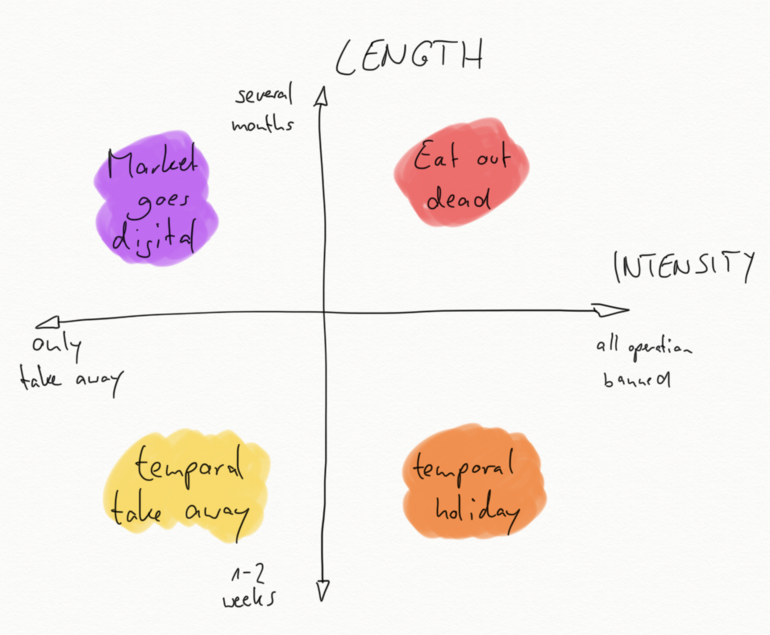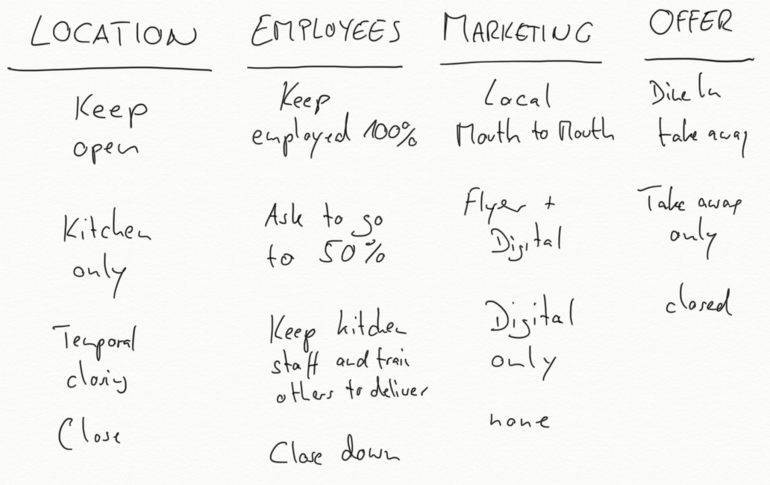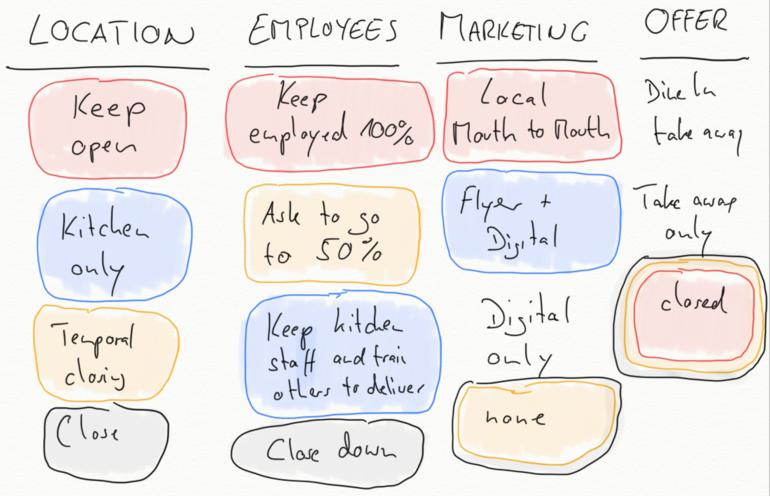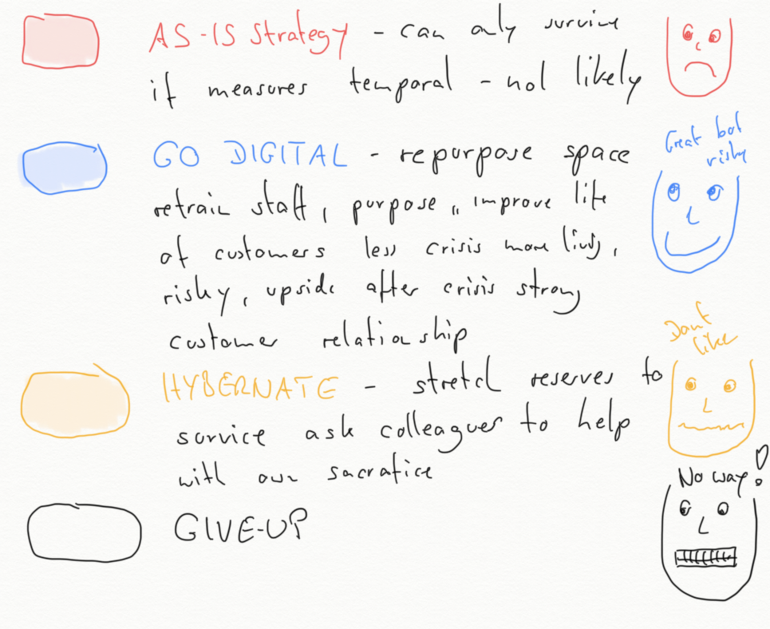
Three important lessons I learned about business in Covid-19 times
While sitting here today, in France in partial confinement, my mind is still lingering on a conversation I had two days ago with a remarkable person, a restaurant owner in Paris.
I was grabbing some lunch in the already quite deserted city when the owner came to my table sat down and asked if I was ready to share a bottle of wine with him, as it might be the last one he will open in his restaurant for some time…
He asked me what I do for a living and I told him: “Well it is difficult to explain, but I help companies to plan with scenarios when times are uncertain. He said: “My situation with confinement coming up is not only uncertain, but it impossible to survive as a business”. To keep the discussion going he asked me to explain what good a scenario would do in his situation.
So, I asked him about the key uncertainties he is facing today. He said: “That is easy. How long will the Covid-19 crisis last? And How bad will the confinement be, will that shut me down completely or will I be allowed to at least do take away?” I said: “Ok, then let us map it on a scenario cross.”

“Now, when you look at this picture what do you see?” He said: “The bottom ones are easy. These would mean that I only need to bridge some time, for which I only need to send my people on holiday or even only part of them on the left as probably 30% of my people could operate the takeaway business”. I said: “Ok, but what about the top?” He answered: “Well, this is kind of interesting. I was thinking that I would be dead in all cases, but of course even in confinement, people still need to eat and don’t want to cook or cannot cook what they want so on the left of your strange picture there would be a market opening up for take away or delivery, if only that would be exempted from confinement rules…”
I said: “While this exercise only took us 5 min, it did something powerful for us, it allows us to see the world with new eyes, opened our mind towards all possible strategic choices and can help us plan our next actions. But tell me, what are the actual choices you need to make?”
He responded: “That’s easy, should I close for good and file for bankruptcy directly. Or should I play for time, keep some of the staff and hope that the crisis is over soon”. I agreed, but said” So far, you have not considered what to do about the potential take away business. Maybe a little strategy playbox would help and we mapped some additional options along his four key strategic action fields, location, employees, marketing and offering.

After pouring another glass he said, “Ok I am not sure I am getting this, but it looks as if there are some alternative strategies here, right?” So, I started to circle and color the options that fit together.

He was a quick thinker and while I was still drawing my circles he said: “Sure the red circles are pretty much what I do today, only that in confinement I am dead with this. What we talked about, triggered by the takeaway idea, has become the blue strategy. That one could however be a way to grow fast if I would be the only open restaurant and my loyal customers are almost certain to be my new first customers and my multipliers. That is clearly worth considering! Yellow is only the playing-for-time-strategy, in which I hibernate. The gray strategy is giving up without a fight. But when I see that now on the map I am feeling: NO WAY.”

He took another sip and got up. He told me: “Enjoy the wine and excuse me for a second, I want to call my chef and ask him what he thinks. I send him already home, but I want to check in with him to see what he thinks about the blue strategy, but then I will also show the options to my waiters. I will also call two of my regulars. I am sure that love the idea to be saved from the prospect of cooking by themselves the next weeks…”
While he strolled away and left me with the wine, I had the feeling that I have learned three important lessons from this entrepreneur about how to run a business in uncertain times:
- Stay close to your customers’ needs. The joy and emotions attached to a dinner from a restaurant may carry his business and no conferment will change the customer need, it might only need to be fulfilled in different ways.
- Emphasize transparency towards your stakeholders. I was thinking that he will keep his considerations to himself until he settled for a strategy. But he seemed to instinctively assume that the success of any strategy hinges on the readiness of his stakeholders (his chef and his waiters) to follow him.
- Keep your spirit. When he came to my table, he looked like a man who lost his spirits, but it took only a little reperceiving to revitalize his entrepreneurial drive.
When I left, I could still hear him on the phone and left humbled by the entrepreneurial energy and fast mind, that I am sure will provide him with a great prospect within the crisis or latest in the phase in which we will all have to rebuild.
To all entrepreneurs out there: Thank you for your energy and inspiration that I am sure we can rely on when we rebuild our economy and society, maybe even in more wise and sustainable ways.
Article originally published on March 17th 2020 on LinkedIn
